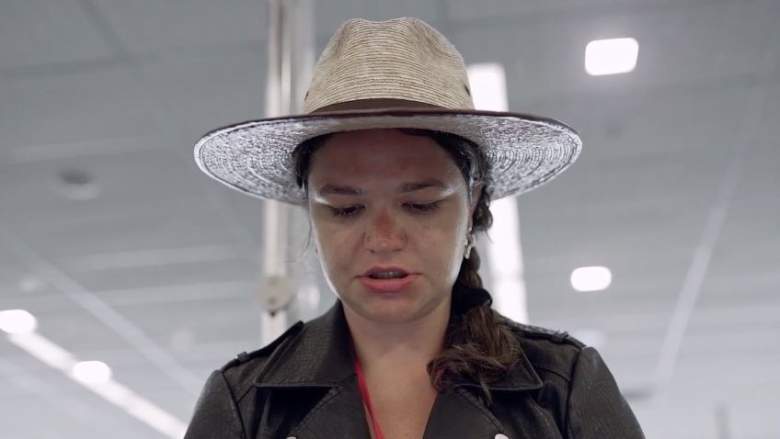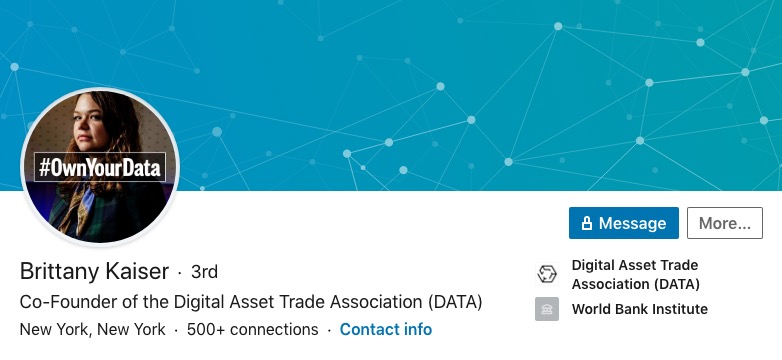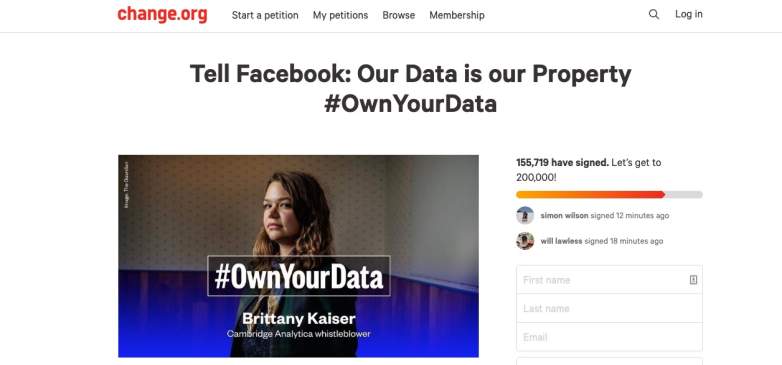
Netflix
Brittany Kaiser is a central figure in Netflix’s new documentary The Great Hack. Brittany Kaiser was a whistleblower of sorts within Cambridge Analytica and provides many of the details for Netflix’s new documentary, including highlighting some moments when she thought Mark Zuckerberg wasn’t completely forthcoming during his testimony. Where is she now and how old is she?
Brittany Kaiser Isn’t Hiding out in Thailand Today
Some scenes in the documentary show Brittany Kaiser in Thailand, but don’t specify any more details than that. It seems pretty mysterious until we learn at the end of the documentary that Kaiser is now a public advocate for data rights and running a campaign called #OwnYourData. She’s out front now and working in the open, no longer hiding out in Thailand.
During the documentary, we see Kaiser at Burning Man in Nevada, at a pool in Thailand where she’s staying at an undisclosed hideout, and testifying in New York in Mueller’s investigation.
Karin Amer and Jehane Noujaim created the documentary and spoke with The Guardian about the process. Amer said that the first time he met Kaiser was at the pool in Thailand. She kept her sunglasses on so he couldn’t see her eyes. The documentary never actually reveals why she was in Thailand or why the location was kept secret. But she’s not still hiding today.
It should be noted that many believe Kaiser isn’t officially a whistleblower. Reporter Carole Cadwalladr took issue with the label in 2018.
Kaiser left Cambridge Analytica in 2018, before she spoke with The Guardian about the practices she encountered at the company. She was subpoenaed by Robert Mueller in 2018.
Brittany Kaiser Is in Her Early 30s
According to her LinkedIn profile, Brittany Kaiser graduated from Phillips Academy, a coed secondary school, in 2005. Although her exact age isn’t known, this would make her about 32 years old today. She was an intern for President Barack Obama’s campaign in 2008, just 11 years ago, when she was in her early 20s. Alexander Nix, former CEO of Cambridge Analytica, sought her out after her work with the Obama campaign, seeking to know what they had done to be so influential. Kaiser said in the Netflix documentary that she took the job because other campaigns, like Obama’s administration, were not going to pay her and between 2008-2014, her family had major financial troubles, lost their home, and they needed the money to survive.
Today She Runs a Business Focused on Owning Data
According to Kaiser’s LinkedIn profile, she’s now located in New York City and is the co-founder of the Digital Asset Trade Association (DATA.) Her profile photo displays the hashtag #OwnYourData. She’s been the co-founder for a year-and-half, starting in February 2018, her LinkedIn shares. She was with Cambridge Analytica until March 2018, according to her LinkedIn profile.
Her bio reads: “I am an international law, diplomacy and data-driven campaigning professional with significant global experience. My work involves developing successful strategies for politicians, governments, and corporations to achieve their goals using cutting edge technology. Currently focused on legislative reform for digital assets such as personal data and tokens on the blockchain.”
Kaiser’s business also runs a Twitter account that has just made 14 tweets so far, called OwnYourDataNow.
She Has a Petition on Change.org Focused on Owning Data & She Often Attends Speaking Engagements
Kaiser started a petition more than a year ago on Change.org to tell Facebook “Our Data is Our Property.” The petition has 155,719 signatures.
Here’s what Kaiser wrote on the petition:
Mark Zuckerberg, change Facebook’s rules and give us back control over our data, our digital assets, our property. #OwnYourData
Mark Zuckerberg’s social network Facebook, along with other digital platforms and big data aggregators, make billions out of us and our data – and they can not even keep it safe. They collect information about who we are, our friendships and how we view the world. They find out what we buy, what we do online, how we live our lives offline. Then they use our own data to sell to us – from pharmaceuticals to political campaigns. We’re just now realizing the bad news: we’re the product they’re selling. Our data has been exposed without our real consent.
Are these companies ripping us all off? If so, does this have to continue this way? I believe that if we act together, we can change the business model to the benefit of people globally. Sign up and share the #OwnYourData petition now, and let’s take back our rights.
I know about this topic intimately because I used to work for Cambridge Analytica – the data company which works on elections and commercial advertising campaigns. Now I’m blowing the whistle on the whole industry. The problem starts with the Silicon Valley tech platforms, which track our every movement and make us easy to target.
It’s time for us to own our own data. This is a human right. We should be able to decide freely how our data is used (and how it is not); stop anyone using using it to try and manipulate us; take it with us if we leave the platform; And to get paid for the value our data generates.
To decentralize power and drive accountability, we’re demanding that Facebook update its terms of service, and grant all its users these simple and fundamental data and property rights immediately.
Facebook is already in crisis. Their stock price has fallen by almost $100 billion. Let’s step up the pressure and make this happen while we have the momentum.
The future is ours. I am the future, are you? Sign up now and share widely.
In addition to this petition, Kaiser also attends a number of speaking engagements. From May 5-7, 2020, for example, she will be participating in Social Media Week in New York City. This past year for Social Media Week, she led a session called “Own Your Data” on May 2, 2019.
Kaiser says she’s not an advocate for privacy, Social Media Week shared, but she’s an advocate for transparency and owning our data. She favors data security over privacy. “Privacy is a scaremongering tactic that assumes people will abuse your data,” she said.



